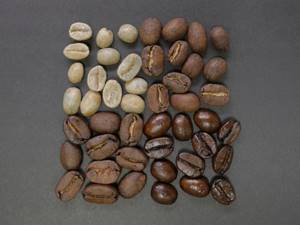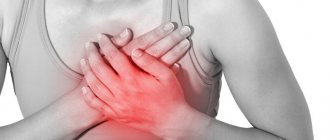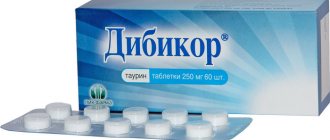Caffeine is the most consumed stimulant in the world. And in most cases it enters the body with coffee. Today, coffee is the second most consumed drink among all drinks after water. About 2.25 billion cups of this drink are drunk every day. In addition to coffee, caffeine is also found in other plants: tea, mate, guarana, cola, cocoa. In nature, caffeine is produced by plants to ward off pests and attract pollinating insects. There is synthetic caffeine.
Effect of caffeine on the body
Caffeine is similar to the substance adenosine, which is responsible for the “inhibitory” effect in the brain. Adenosine acts as a protection against stress and prevents the brain from overheating. It makes you feel sleepy after emotional or mental stress. Caffeine temporarily interrupts the effects of adenosine and prolongs wakefulness. Caffeine does not invigorate, but delays the braking process. At the same time, it borrows money from the body.
In studies, it was noted that after a decrease in productivity, taking caffeine restored it to 90% of the baseline level.
Source: Sahand Hoseini on Unsplash
Can caffeine help you sober up?
According to a common myth, caffeine is not only a strong tonic, but also a substance that can combat the effects of alcohol consumption.
Scientists have proven that this myth is not true: it is impossible to sober up with caffeinated drinks, but it is easy to harm your body.
Since caffeine creates the illusion of cheerfulness, and alcohol reduces attention and criticism of one’s own actions, the combination of these substances can push a drunk person to rash actions: driving a car, walking in the cold in light clothes, conflicts with others.
In addition, the invigorating effect of caffeine does not allow a person to adequately assess the degree of intoxication and continue drinking alcohol. This can lead to serious poisoning.
Caffeine use: dosage and overdose
Doctors recommend that adults consume no more than 400 mg of caffeine per day (3-4 cups of coffee), and teenagers - no more than 100 mg. This dosage is considered safe and healthy. At the same time, you can drink no more than 200 mg at a time. The same dose is safe to take before physical activity.
Exceeding this dose can lead to the following negative consequences:
- migraine
- insomnia
- nervousness
- irritability
- stomach upset
- increased heart rate
The lethal dose of caffeine is about 5000 mg. This is about 1 cup of espresso per 1 kg of body weight. Moreover, you need to drink the entire dose in a short period of time, which is almost unrealistic. However, if the recommended daily dose is regularly exceeded, there is a risk of side effects.
Side effects occur at doses of more than 6 mg/kg body weight: increased pulse and blood pressure, anxiety, digestive problems, insomnia and other symptoms. They rarely occur at doses of 4-5 mg/kg body weight and do not appear at doses of 3 mg/kg or less.
Who needs to be careful
- First of all, to persons who have severe atherosclerosis or a state of hypertensive crisis. It is not recommended for patients suffering from glaucoma. Glaucoma is a disease in which intraocular pressure increases due to disruption of the outflow of intraocular fluid. If the listed conditions are in remission, then you can sometimes afford a small amount of weak coffee.
- Coffee contains tannins, which help reduce the production of secretions in the stomach, duodenum and intestines. Therefore, coffee is contraindicated for peptic ulcers in these organs. Outside of exacerbations of these diseases, you can drink a cup of weak coffee or tea with milk.
- Coffee will not help you sober up if you are drunk. On the contrary, it will contribute to a decrease in concentration and reaction speed. Especially if the person is driving.
Drinking coffee or tea is a kind of doping. They can improve nervous, cardiovascular, endocrine system activity and muscle strength in the short term. But do not forget that in addition to benefits, caffeine can also cause harm.
Caffeine and coffee: benefits and harms
There are many myths about the dangers of coffee, but its harm is greatly exaggerated. When consumed in moderation, coffee and caffeine are beneficial to the body. Moreover, caffeine is included in the Russian list of “Vitally Necessary and Essential Medicines.” But if you consume caffeine in excess, health problems may arise.
Harm of coffee and caffeine
- Caffeine is harmful to pregnant women in doses exceeding 200 mg per day. May cause abnormalities in fetal development.
- Coffee and caffeine cause addiction to the taste and aroma of coffee, and an invigorating effect. But this cannot be called an addiction comparable to drugs, even such mild ones as nicotine or alcohol. Withdrawal syndrome can only occur in avid coffee drinkers. Symptoms disappear in 2-3 days and do not require treatment. These are headaches, feeling tired, increased anxiety, irritability, and bad mood. In most cases, withdrawal symptoms do not manifest themselves at all.
- Caffeine interferes with the body's absorption of calcium and weakens bones. Therefore, it is not recommended for older people and teenagers.
- Overdose may cause health problems.
The benefits of coffee and caffeine
The beneficial properties of coffee and caffeine appear with moderate consumption - 1-3 cups per day.
- Drinking coffee reduces mortality from cancer, liver disease, cardiovascular disease, diabetes and other diseases by 12-18% compared to people who do not drink coffee (Studies: 1 , 2 ). However, the benefit is not due to caffeine, as previously thought. A positive effect was observed even when drinking decaffeinated coffee.
- Caffeine reduces fatigue and delays its onset, improves concentration
- Helps the body use fats as energy, which promotes weight loss and increases endurance
- Reduces the risk of cancer and cardiovascular disease
- Improves brain function, reduces the risk of Alzheimer's disease and depression
- Participates in glucose metabolism and reduces the likelihood of diabetes mellitus
- Improves performance in endurance competitions by 1-3%
- When combined with carbohydrates, it helps with recovery after exercise.
Source: Mike Kenneally on Unsplash
Beneficial properties of caffeine
Interesting fact: if your goal is to perk up, then coffee and tea without sugar give more positive results.
Caffeine is a good central nervous system stimulant. It acts like amphetamine, but its effects are much weaker and safer.
Caffeine has the following properties:
- increases the excitability of the central nervous system;
- improves concentration;
- improves mood;
- reduces fatigue;
- stimulates the synthesis of dopamine (the hormone of joy);
- enhances the mobilization of fatty acids by increasing the level of adrenaline in the blood;
- increases the use of triglycerides by muscles (a nutrient source necessary for muscle function). This function becomes indispensable during intense training;
- Increases performance, concentration and strength in athletes.

How much caffeine is in coffee, tea and energy drinks
The caffeine content of foods and drinks depends on preparation methods and other factors and is therefore constantly changing. For example, Arabica beans contain less caffeine than Robusta beans.
- Dark chocolate - 86 mg per 100 g
- Milk chocolate - 43 mg per 100 g
- Instant coffee - 30-50 mg per 100 ml
- Filter coffee - 80-100 mg per 100 ml
- Espresso – 100-250 mg per 100 ml
- Black tea - 20-50 mg per 100 ml
- Green tea – 10-25 mg per 100 ml
- Whiskey - 15 mg per 100 ml
- Energy drinks - 30-40 mg per 100 ml
- Coca-Cola - 12 mg per 100 ml
- Mountain Dew - 17 mg per 100 ml
- Red Bull - 40 mg per 100 ml
- Caffeine Sports Gel

Coffee beans of different roasts. Light beans - without roasting. Source: nousnou iwasaki on Unsplash
When is there too much caffeine?
The symptoms of a caffeine overdose are fairly easy to recognize. These include:
- cardiopalmus
- increased anxiety
- insomnia
- diarrhea
- frequent urination
- dizziness
- cramps in the stomach and intestines
- flushed face
- thirsty
- nausea
- headache
Symptoms of hypersensitivity to caffeine are very similar to those that occur with a caffeine overdose. Attention: they can occur when consuming products even with a small content of this substance - for example, chocolate!
Coffee and caffeine in sports
Caffeine is an effective sports supplement for endurance sports. Especially in the second half of the distance, where fatigue accumulates. For sprints, strength and technical sports, caffeine will not benefit. The most common users of caffeine are cyclists, triathletes and rowers.
Caffeine was banned for a long time by the anti-doping agency WADA, but in 2004 it was again allowed in doses of up to 13 mg/kg. To improve athletic performance, doctors recommend taking caffeine 3-6 mg per kg of body weight. Higher dosages do not lead to increased performance, but increase the risk of side effects.
- Don't use caffeine regularly if you want to feel the effects in competition. The effect of caffeine decreases with regular use, so take caffeine a week before the race
- Do not combine creatine intake with caffeine. They reduce each other's effectiveness
Important! Before using caffeine in competitions, test it in training to rule out individual intolerances and allergies. This applies to all sports nutrition.
How does caffeine work?
Caffeine blocks the inhibitory neurotransmitter, adenosine.1
By blocking adenosine, caffeine enhances neuronal activity and accelerates the release of neurotransmitters such as dopamine and norepinephrine. This, in turn, makes us feel more energetic and alert.
Thus, coffee helps us stay active when we feel tired. According to a meta-analysis of data from many studies carried out by English scientists, caffeine improves performance and athletic performance by an average of 11–12%.
Benefits for athletes
Due to its ability to increase concentration and improve workout performance, caffeine is a popular supplement among athletes. Its positive effect on training has been proven in many studies.
For example, a study conducted by Canadian scientists among athletes showed that taking 4.45 mg of caffeine per kilogram of body weight increases endurance.
Athletes taking the supplement were able to cover 2 to 3.2 kilometers more distance than the placebo group.3
Another study of cyclists found that caffeine was superior to carbohydrates and water in terms of benefits. Caffeine intake increased workload by 7.4% compared to 5.2% in the carbohydrate group.
Another study conducted by British scientists that combined caffeine with carbohydrates showed a 9% improvement in performance compared to the group receiving only water, and 4.6% compared to those who received only carbohydrates.
Caffeine Basics
Caffeine belongs to the alkaloids - substances that are organic alkali obtained from plants. These are nitrogen-containing organic compounds with one or more nitrogen atoms. Alkaloids were first obtained more than 200 years ago from poppy seeds, after which scientists discovered a number of similar compounds that are part of plant materials.
Alkaloids have a powerful effect on the human body, primarily on the nervous system. This also applies to caffeine, which manifests itself as a powerful central nervous system stimulant. As an alkaloid, caffeine is included in the subgroup of methylxanthines (xanthine derivatives), and is their main representative. These substances are used in sports nutrition as stimulants.
Caffeine is found in the following plants:
- coffee tree;
- tea;
- guarana;
- cola;
- mate.

Caffeine isolated from tea is also called “theine”, and from mate – “matein”. For pharmacological purposes, caffeine is produced synthetically by extracting it from plants. Extraction in chemistry is the process of isolating a substance from any composition by dissolving it in a special substance. In sports drinks, caffeine is used separately, as part of fat burners, energy drinks, pumping complexes or pre-workout complexes.
We advise you to study: All about pre-workout complexes.”
Symptoms of Caffeine Withdrawal Syndrome
- chills
- decreased attention
- depressed mood
- difficulty concentrating
- constipation
- drowsiness
- headache
- irritability
- muscle pain
When these symptoms occur, it means that you are drinking too many caffeinated drinks and your body has developed an addiction. In this case, experts recommend significantly reducing the daily dose of caffeine or abandoning it altogether.











